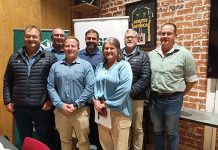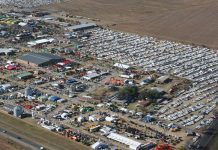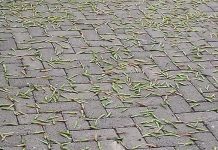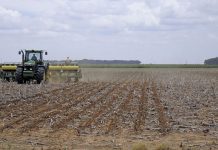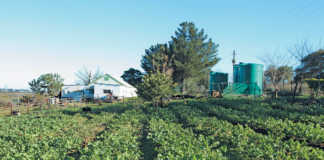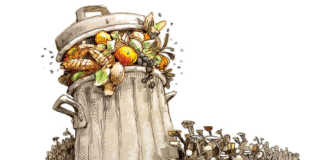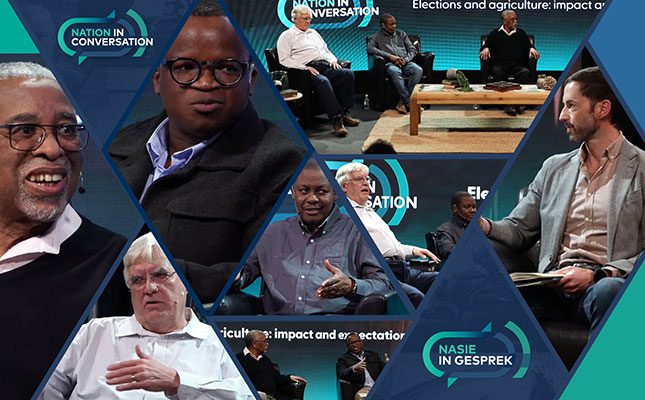
These elections will be the seventh general election since 1994 and marks 30 years of ANC governance.
But, where the ANC obtained close to 70% of the votes in 2004, its support dwindled to just over 57% in 2019, and many are speculating that in the upcoming elections, ANC support will further decline to between 40% and 50%.
If this pans out, it will mean that a coalition will have to be formed at national and provincial level.
Furthermore, several new parties have entered the playing field, resulting in 52 parties competing at the election booth.
Over the past years, however, structural problems in the country’s political economy, poor service delivery and poor educational and health systems impacted seriously on economic growth and socio-economic conditions in the country.
South Africa’s crime levels ranging from ordinary theft to sophisticated networks of cartels and syndicates have frequently ranked among the highest in the world.
A recent Nation in Conversation panel discussion at Nampo Park focusing on the elections and the possible implications for agriculture and the broader economy attracted great interest at Nampo.
Panellists included Waldimar Pelser, director of kykNET channels at MultiChoice as facilitator; Wandile Sihlobo, chief economist at Agbiz; JP Landman, an independent political analyst; Isaac Matshego, chief economist at Nedbank; and Moeletsi Mbeki, political and economic commentator.
The session’s conversation analysed what brought South Africa to where it was currently, and what the impact of the coming elections might have on the country and on agriculture specifically.
The panel also touched on what possible policy shifts could occur post-elections.
Sihlobo was quick to warn that people must not view preliminary polls on what might happen during the election as a forecast of what will pan out.
“We must refrain from viewing the polls as forecasts. Things might not turn out as predicted and then we could be disappointed or discouraged.”
Mbeki kicked off the rest of the conversation by stating that he does not think that many South African people are of the opinion the ANC government is capable of delivery anything. “Just look at railways, service delivery, water and electricity.”
Mbeki concurred that elections always triggered a lot of instability. “Our development model has reached its plateau. We need to move to a new plateau and for that we need a new development model. More than 50% households are receiving welfare. A society like that is in deep trouble,” he stated.
Mbeki’s statements reflected his view that a broader, more inclusive approach was necessary for democratic governance and accountability in South Africa.
On the issue of land reform, which was a topic of concern and discussion during previous elections, Mbeki said that South Africa did not really need land reform. “Transferring land from a white person to a black person is not land reform; it is a transaction.”
He based his opinion on the fact that land reform was needed when a sector such as agriculture was not delivering on agricultural exports, feeding those that are not involved in agriculture and creating jobs.
“South African agriculture is already performing on each of these; we are already exporting a great deal of products, we are feeding the nation and even exporting food, and we are accommodating people in the labour force in agriculture and even creating jobs. We do not need land reform.”
Sihlobo and Landman, however, differed from Mbeki and stated that they feel land reform was needed from a political point of view. “From an economic view, I can understand why it could be said that we do not need reform, but from a socio-political view point, we need to address racial inequalities.”
Sihlobo added that there was a great deal of land in the hands of the state and that it was necessary to bring that land into production. “With our history we need land reform, and we need to fix certain things. We need to bring more black farmers into the commercial arena.”
Focusing on coalitions, Mbeki stated that the core electorate of the ANC and DA have more in common that what most people think. The panellists agreed: while not very likely, a grand coalition between the ANC and either the DA or EFF could be formed.
Landman agreed with Mbeki, saying that although there were differences between the DA and the ANC, it was not nearly as much as voters perhaps thought. He warned, however, that the only way coalitions could work is if the focus shifted from ‘who’ to ‘how’.
With regard to a coalition, Sihlobo said that he was worried specifically about service delivery, and cited examples from the agriculture sector, such as road and railway networks and municipalities that were not functioning.
“These are all crucial to run a successful agriculture sector,” he pointed out.
Landman replied that the country was moving away from a state monopoly that ran many of the service delivery sectors to a system of deliberate co-operation. “The deliberate co-operation between government and the private sector is happening in electricity, at railways and ports and is now starting to happen in the water industry.”
Matshego concluded that the incoming government would need to spend money efficiently on infrastructure such as electricity, roads, and water. “If they do that, we will be able to say that they have done something for agriculture.”
Ending the discussion, Pelser asked the panel if it mattered who would be in government following the elections. “Will the outcome determine our future? Will we survive?”
The unanimous answer was: “Yes, we will survive. We have in the past and we will again.”

